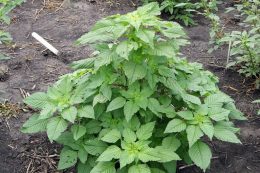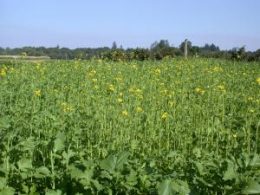 Getting good control of Palmer amaranth and common waterhemp in Kansas has become more of a challenge in recent years. Many populations are now resistant to either glyphosate, triazine, ALS-inhibitor herbicides, HPPD-inhibitor herbicides, PPO-inhibitor herbicides – or a combination of those modes of action. As wheat harvest approaches over the next few weeks in Kansas, producers should plan now for good weed control ahead of double crop soybean.
Getting good control of Palmer amaranth and common waterhemp in Kansas has become more of a challenge in recent years. Many populations are now resistant to either glyphosate, triazine, ALS-inhibitor herbicides, HPPD-inhibitor herbicides, PPO-inhibitor herbicides – or a combination of those modes of action. As wheat harvest approaches over the next few weeks in Kansas, producers should plan now for good weed control ahead of double crop soybean.
There are several ways producers can try to manage pigweeds in double crop soybeans. However, all of them involve higher costs than in the past when one or two postemergence applications of glyphosate could control pigweeds in double crop Roundup Ready soybeans. It is common for pigweed to emerge from the early spring through late summer. Because of the ecology of the winter wheat crop, a higher percentage of pigweed emergence can occur a bit later in the season than on fields where wheat is not growing. This can put additional pigweed pressure on double crop soybean. Continue reading “Double Crop Pig Weed Control”

